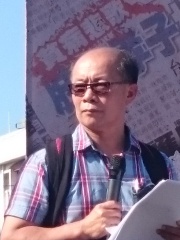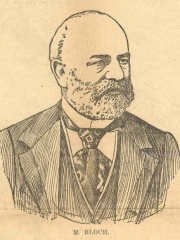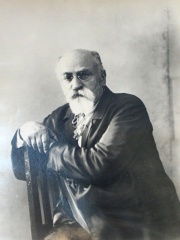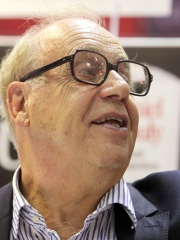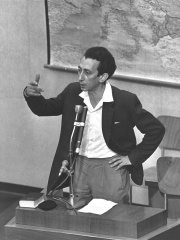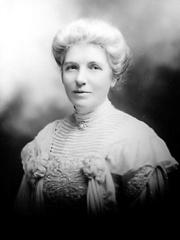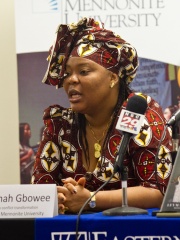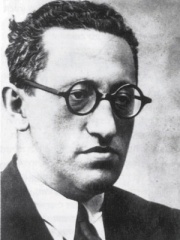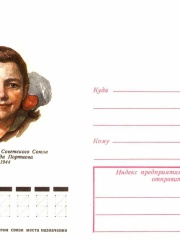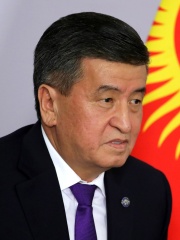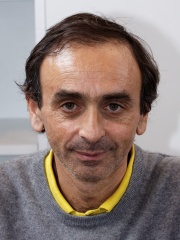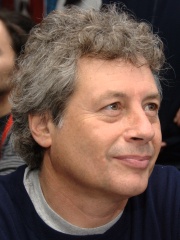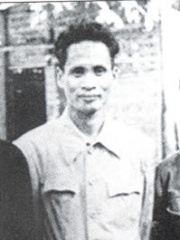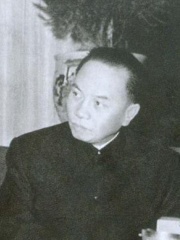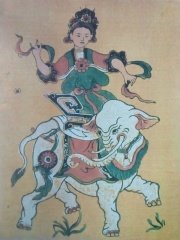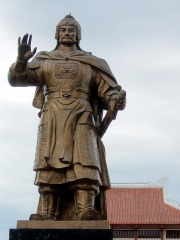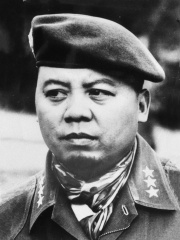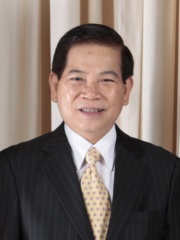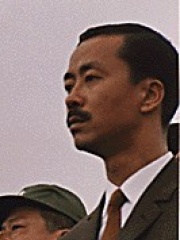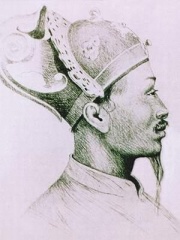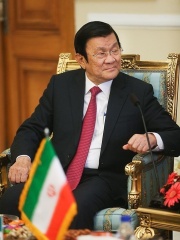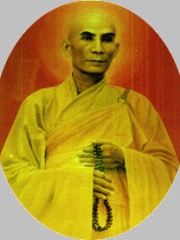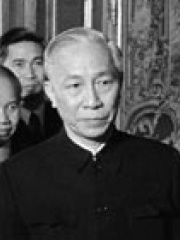Social Activist
Peter Nguyen Van Hung
1958 - today
EN.WIKIPEDIA PAGE VIEWS (PV)
 Peter Nguyen Van Hung
Peter Nguyen Van Hung
His biography is available in 37 different languages on Wikipedia (up from 16 in 2024). Peter Nguyen Van Hung is the 250th most popular social activist (up from 571st in 2024), the 40th most popular biography from Vietnam (up from 103rd in 2019) and the 3rd most popular Vietnamese Social Activist.
Memorability Metrics
Page views of Peter Nguyen Van Hung by language
Among Social Activists
Among social activists, Peter Nguyen Van Hung ranks 250 out of 840. Before him are Jan Gotlib Bloch, David Riazanov, Narges Mohammadi, Jean Ziegler, Abba Kovner, and Kate Sheppard. After him are Leymah Gbowee, Edward Snowden, Djamila Bouhired, Haim Arlosoroff, Zinaida Portnova, and Attica.
Most Popular Social Activists in Wikipedia
Go to all RankingsJan Gotlib Bloch
1836 - 1902
HPI: 63.20
Rank: 244
David Riazanov
1870 - 1938
HPI: 63.16
Rank: 245
Narges Mohammadi
1972 - Present
HPI: 63.13
Rank: 246
Jean Ziegler
1934 - Present
HPI: 63.05
Rank: 247
Abba Kovner
1918 - 1987
HPI: 63.04
Rank: 248
Kate Sheppard
1848 - 1934
HPI: 63.04
Rank: 249
Peter Nguyen Van Hung
1958 - Present
HPI: 63.01
Rank: 250
Leymah Gbowee
1972 - Present
HPI: 62.98
Rank: 251
Edward Snowden
1983 - Present
HPI: 62.88
Rank: 252
Djamila Bouhired
1935 - Present
HPI: 62.88
Rank: 253
Haim Arlosoroff
1899 - 1933
HPI: 62.88
Rank: 254
Zinaida Portnova
1926 - 1944
HPI: 62.88
Rank: 255
Attica
55 BC - 28 BC
HPI: 62.84
Rank: 256
Contemporaries
Among people born in 1958, Peter Nguyen Van Hung ranks 80. Before him are Sooronbay Jeenbekov, Maggie Hassan, Simon Le Bon, Giuseppe Baresi, Goran Hadžić, and Éric Zemmour. After him are Javier Aguirre, Phạm Minh Chính, Riccardo Paletti, Dragan Đokanović, Alessandro Baricco, and Pernilla August.
Others Born in 1958
Go to all RankingsSooronbay Jeenbekov
POLITICIAN
1958 - Present
HPI: 64.16
Rank: 74
Maggie Hassan
POLITICIAN
1958 - Present
HPI: 64.09
Rank: 75
Simon Le Bon
MUSICIAN
1958 - Present
HPI: 64.08
Rank: 76
Giuseppe Baresi
SOCCER PLAYER
1958 - Present
HPI: 63.99
Rank: 77
Goran Hadžić
POLITICIAN
1958 - 2016
HPI: 63.39
Rank: 78
Éric Zemmour
WRITER
1958 - Present
HPI: 63.31
Rank: 79
Peter Nguyen Van Hung
SOCIAL ACTIVIST
1958 - Present
HPI: 63.01
Rank: 80
Javier Aguirre
COACH
1958 - Present
HPI: 62.99
Rank: 81
Phạm Minh Chính
POLITICIAN
1958 - Present
HPI: 62.97
Rank: 82
Riccardo Paletti
RACING DRIVER
1958 - 1982
HPI: 62.90
Rank: 83
Dragan Đokanović
POLITICIAN
1958 - Present
HPI: 62.89
Rank: 84
Alessandro Baricco
WRITER
1958 - Present
HPI: 62.58
Rank: 85
Pernilla August
ACTOR
1958 - Present
HPI: 62.57
Rank: 86
In Vietnam
Among people born in Vietnam, Peter Nguyen Van Hung ranks 40 out of NaN. Before him are Minh Mạng (1791), Phạm Văn Đồng (1906), Trường Chinh (1907), Lady Triệu (225), Nguyễn Huệ (1752), and Nguyễn Khánh (1927). After him are Nguyễn Minh Triết (1942), Phạm Minh Chính (1958), Marie-France Pisier (1944), Nguyễn Cao Kỳ (1930), Tự Đức (1829), and Trương Tấn Sang (1949).
Others born in Vietnam
Go to all RankingsMinh Mạng
POLITICIAN
1791 - 1841
HPI: 63.41
Rank: 34
Phạm Văn Đồng
POLITICIAN
1906 - 2000
HPI: 63.33
Rank: 35
Trường Chinh
POLITICIAN
1907 - 1988
HPI: 63.32
Rank: 36
Lady Triệu
MILITARY PERSONNEL
225 - 248
HPI: 63.31
Rank: 37
Nguyễn Huệ
POLITICIAN
1752 - 1792
HPI: 63.25
Rank: 38
Nguyễn Khánh
POLITICIAN
1927 - 2013
HPI: 63.07
Rank: 39
Peter Nguyen Van Hung
SOCIAL ACTIVIST
1958 - Present
HPI: 63.01
Rank: 40
Nguyễn Minh Triết
POLITICIAN
1942 - Present
HPI: 62.97
Rank: 41
Phạm Minh Chính
POLITICIAN
1958 - Present
HPI: 62.97
Rank: 42
Marie-France Pisier
ACTOR
1944 - 2011
HPI: 62.95
Rank: 43
Nguyễn Cao Kỳ
POLITICIAN
1930 - 2011
HPI: 62.74
Rank: 44
Tự Đức
POLITICIAN
1829 - 1883
HPI: 62.72
Rank: 45
Trương Tấn Sang
POLITICIAN
1949 - Present
HPI: 62.70
Rank: 46
Among Social Activists In Vietnam
Among social activists born in Vietnam, Peter Nguyen Van Hung ranks 3. Before him are Thích Quảng Đức (1897), and Lê Đức Thọ (1911).
Thích Quảng Đức
1897 - 1963
HPI: 75.84
Rank: 1
Lê Đức Thọ
1911 - 1990
HPI: 70.55
Rank: 2
Peter Nguyen Van Hung
1958 - Present
HPI: 63.01
Rank: 3
